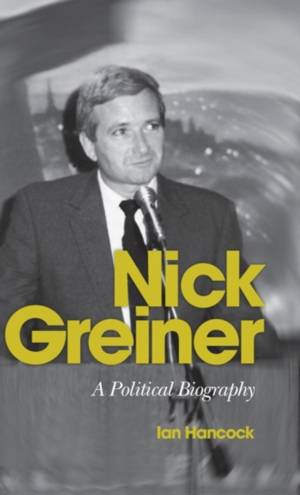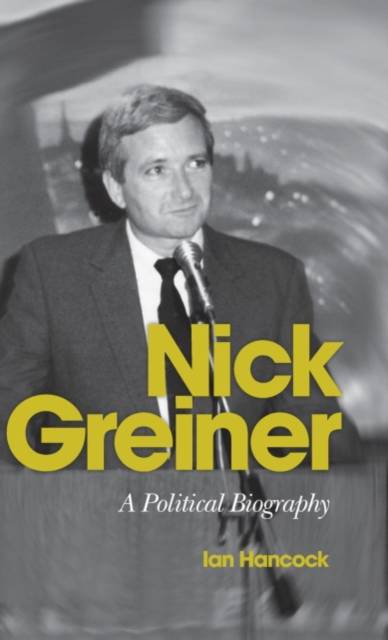
En raison d'une grêve chez bpost, votre commande pourrait être retardée. Vous avez besoin d’un livre rapidement ? Nos magasins vous accueillent à bras ouverts !
- Retrait gratuit dans votre magasin Club
- 7.000.000 titres dans notre catalogue
- Payer en toute sécurité
- Toujours un magasin près de chez vous
En raison de la grêve chez bpost, votre commande pourrait être retardée. Vous avez besoin d’un livre rapidement ? Nos magasins vous accueillent à bras ouverts !
- Retrait gratuit dans votre magasin Club
- 7.000.0000 titres dans notre catalogue
- Payer en toute sécurité
- Toujours un magasin près de chez vous
Description
Nick Greiner was an unusual post-war Premier of NSW. He came into office in 1988 wanting to do more than change lifestyles, win re-election and remain popular, and he proceeded to implement a wide-ranging and enduring transformation of what he called "NSW Inc." Greiner's personal story is also unusual. Born in Budapest, the elder son of a Hungarian father and Slovak mother, Nick arrived in Sydney in 1951 at the age of three. His parents' encounters with Nazi and then Communist persecution explain their determination to leave Europe, to 'make good' in Australia, and to encourage their two boys to assimilate. From an early age, Nick wanted to be the best. He came top or amongst the top in every year at school, in the Economics Faculty at the University of Sydney, and at the Harvard Business School. Frustrated by his father's 'European ways' of running the family timber business, he went into politics. Within three years this self-styled 'non-politician' and Liberal Party 'outsider' was elected Leader of the demoralised State Liberals, and within another five years led the Coalition to a landslide election victory. He brought to the premiership, and his later very successful business career, the habits of thought which his Harvard and post-Harvard experience had cultivated: a commitment to change and a willingness to take risks, an emphasis on evidence-based, rational and strategic approaches to decision-making, a concentration on outcomes rather than processes and on practical solutions rather than ideological consistency. Greiner's departure from politics was equally unusual. Having almost lost the unlosable election of May 1991, he took the 'political' option of securing a job in the Public Service for a dissident Liberal in order to reclaim his seat. ICAC, his creation, found him guilty of 'corrupt conduct' within the meaning of his legislation. The Labor Opposition and three high-minded Independents, supported by an equally high-minded media, hounded him out of office before the Court of Appeal overturned a finding which looks even more absurd in the light of recent ICAC investigations. This book sets out to describe and explain Greiner's life in politics, to tell the story of someone who made a difference and yet who, being a manager and strategist rather than a conventional politician, contributed to his own undoing.
Spécifications
Parties prenantes
- Auteur(s) :
- Editeur:
Contenu
- Nombre de pages :
- 478
- Langue:
- Anglais
Caractéristiques
- EAN:
- 9781922168542
- Date de parution :
- 01-07-13
- Format:
- Livre relié
- Format numérique:
- Genaaid
- Dimensions :
- 140 mm x 216 mm
- Poids :
- 698 g

Les avis
Nous publions uniquement les avis qui respectent les conditions requises. Consultez nos conditions pour les avis.






